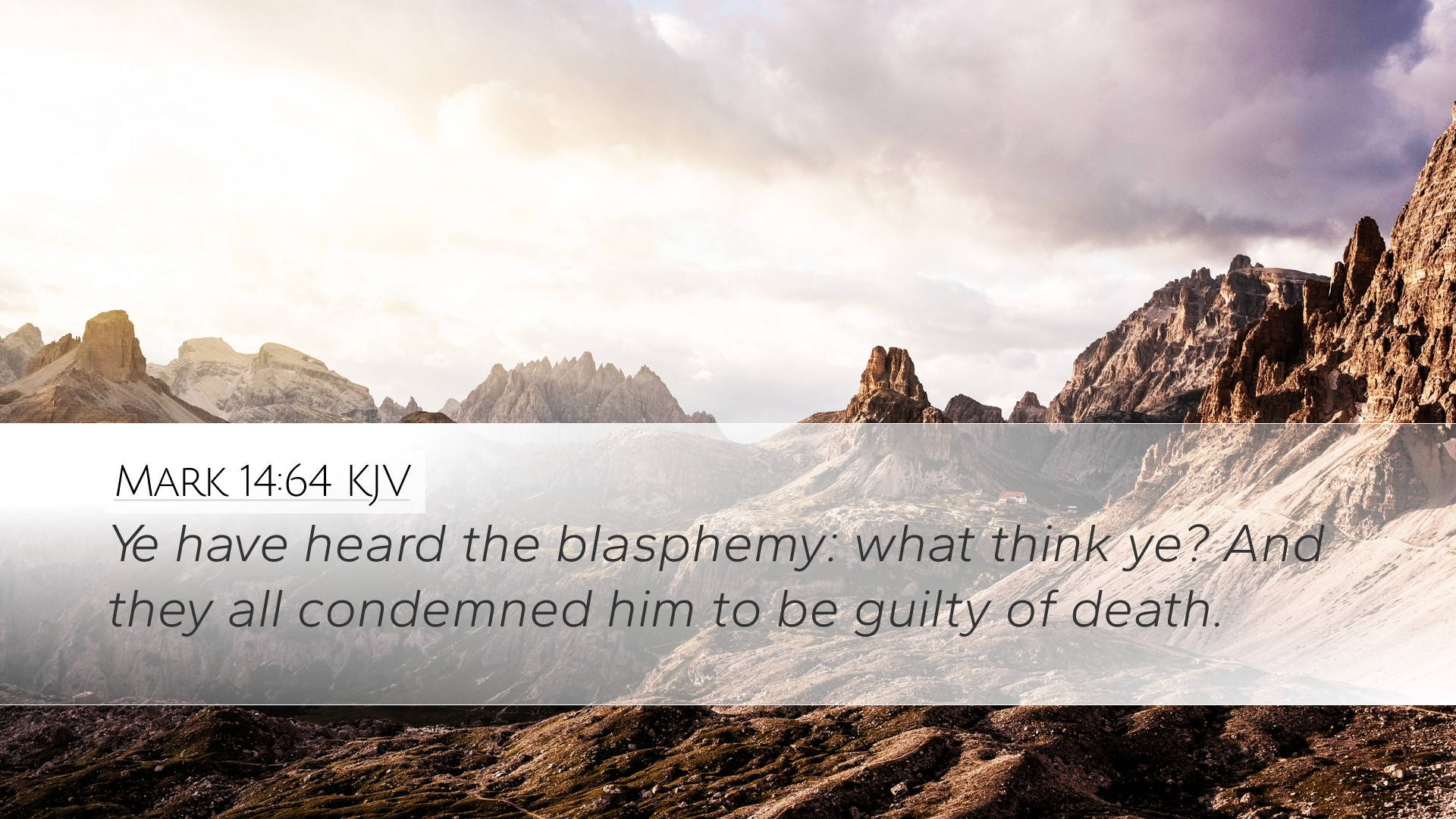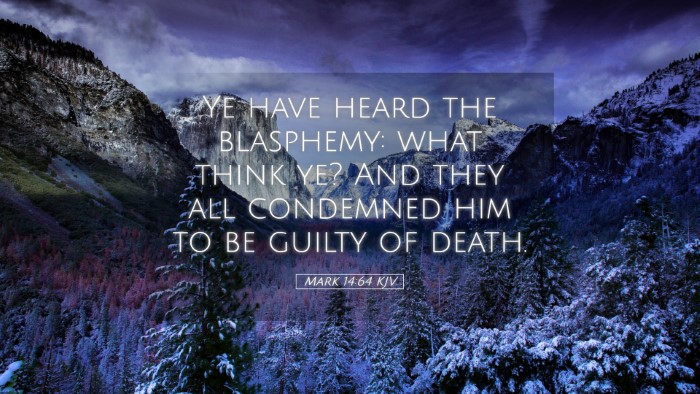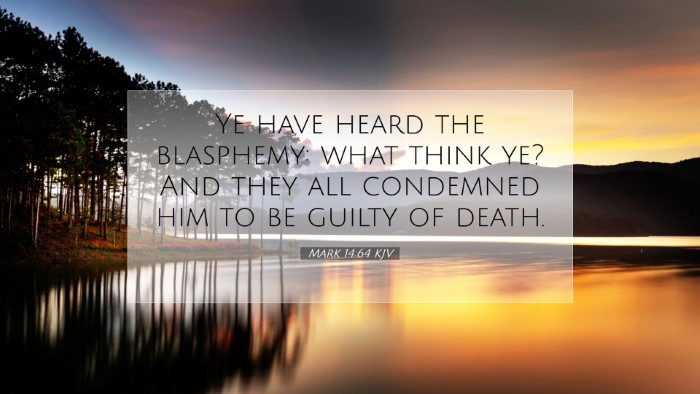Commentary on Mark 14:64
Mark 14:64 states, "You have heard the blasphemy. What do you think?" They all condemned Him to be deserving of death. This moment unfolds during the trial of Jesus before the Sanhedrin, showcasing the turning point in the Passion Narrative. Commentaries from notable theologians offer deep insights into various aspects of this pivotal event.
Historical Context
The trial of Jesus occurs within a historical backdrop of the Jewish Passover festival, which heightens the fervor of the event. Political and religious tensions are palpable, and the actions of the Sanhedrin reflect both a struggle for power and a desperate attempt to maintain religious authority.
Theological Implications
Albert Barnes elaborates on the significance of "blasphemy" in this context, emphasizing that the charge against Jesus—claiming equality with God—was perceived as a direct affront to the religious law of the time. This blasphemous accusation underlines humanity's resistance to divine revelation.
Matthew Henry’s Insights
Matthew Henry provides a pastoral perspective, stressing the moral and spiritual dimensions of this moment. He argues that the trial exemplifies the rejection of truth. The religious leaders, blinded by their own dogmas, fail to recognize the very Messiah they claim to serve. Henry highlights the irony in their judgment; they condemned the Innocent.
Adam Clarke’s Commentary
Adam Clarke offers a critical examination of the phrase "deserving of death." He notes that the sentence reflects not only a judicial decision but reveals the extreme measures the leaders were willing to take to protect their authority. Clarke emphasizes the injustice of their verdict and the thorough violation of due process, as Jesus’s trial was marked by deception and false witnesses.
Reactions of the Sanhedrin
- Unity in Condemnation: The unanimous decision to condemn Jesus speaks volumes about their collective mindset and the lengths they would go to silence a perceived threat.
- Cultural Blasphemy: The charge of blasphemy illustrates a cultural intolerance toward any deviation from established norms, which can serve as a paradigm for understanding modern-day resistances to truth.
Application for Contemporary Believers
Today's believers can derive valuable lessons from the events surrounding Mark 14:64. The trial prompts a self-examination of how we may uphold our own convictions in the face of societal pressure.
- Bold Witnessing: The condemnation of Jesus encourages followers to be unashamed in sharing their beliefs, regardless of the potential backlash.
- Understanding Truth: It compels Christians to ensure their understanding of truth aligns with Scripture, rather than the traditions or opinions of those in authority.
Concluding Thoughts
The fatal decision made by the Sanhedrin demonstrates humanity's distressing tendency to reject divine truth, as seen in the case of Jesus Christ. As pastors, theologians, and Bible scholars reflect on this critical moment, the intersection of faith, authority, and resistance to God becomes increasingly clear. The theological implications remind us of the necessity to uphold truth amidst a divergent culture.


